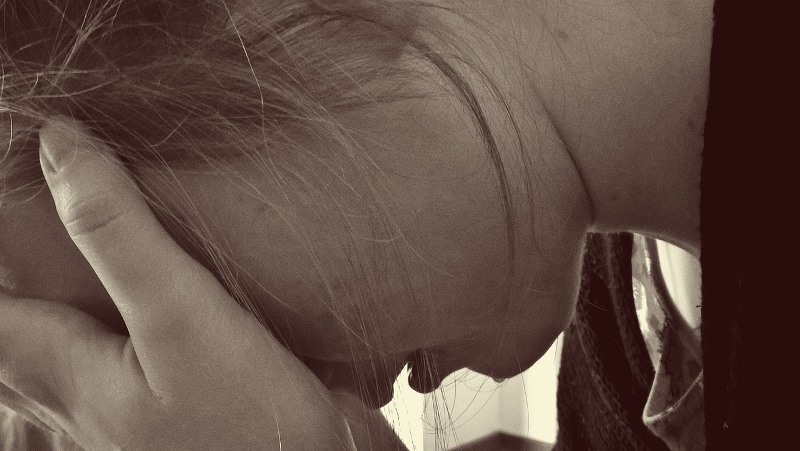According to Elisabeth Kübler-Ross, grieving process consists of five different stages – denial, anger, bargaining, depression, and acceptance. When we face an unforeseen tragedy, we stop being ourselves. Grief can reveal our truest of colors and might make us stronger than ever. Though, it can also make us vulnerable and sensitive at times. It lets us experience a plethora of emotions and not even the toughest of souls are able to come out of it without being affected.
When we lose someone to the reality of death, we first move into denial. We make ourselves believe that the catastrophe can’t even happen. When we realize that we can’t live in denial anymore, we move into anger. We became angry at ourselves and even despise those who try to help us. When we realize we can’t hold on to our anger forever, we move into bargaining. We are ready to give away everything we have only to go back in time and relive those moments. When the bargaining doesn’t work anymore, we let go of our guard and we move into depression. Nothing makes us happy anymore and too often, people are not able to come out of this phase forever. Lastly, we realize that we have to carry on. Even though our lives would never be the same again, we accept the bitter reality and come out of it as a whole new person.
Suggested read: How to date a person with social anxiety
I’m not an expert on grief, but I have lost way too many people in my life. Now when I look back, it seems like my entire life has been a series of goodbyes. Ironically, after experiencing so many losses, I have learned some of the most thoughtful lessons on grief. If you have lost a loved one or are going through a rough patch, remember that the phase would come to an end. These thoughtful points will let you handle the grieving process in a better way.
1. It is subjective

Image source: Pixabay, under Creative Commons License
Grief comes in different ways to different people. One might be suffering from heartbreak or the death of a loved one while going through this heart-wrenching process. There are plenty of other reasons for causing grief. Having a miscarriage, losing a pet, divorce, loss a cherished dream, selling a family house, a breakup, etc. could be one of them.
You might come out of a certain kind of grief in a seamless manner, while for someone else it could be the toughest thing to do. There is no parameter or scale that can measure the intensity of your grief. It is a subjective term as everyone goes through the process in their own way.
2. You can’t ignore it
One of the biggest misconceptions people have regarding the grieving process is that ignoring it or getting distracted by something else might suppress their feelings. Yes, if you ignore it, it might suppress your emotions for the time being, but you would never be able to truly come out of the phase without acknowledging your sadness.
You can’t run away from sadness your whole life. You have to make it a part of yourself. Let it mix with your soul, the same way fluoride mixes with water. It is the only way of coming out of sadness – by being a part of it. If you keep ignoring it, chances are that it might come out unexpectedly. This will cause a sudden change in your behavior and you might end up alienating yourself from everyone.
3. It’s okay to cry

Image source: Google, copyright-free image under Creative Commons License
There is this thing about sadness, it makes you vulnerable. If you have faced a catastrophic change in your life or have lost a loved one, chances are that the intensity of your grief would make you cry. There are a lot of people who think that crying is for kids and that it won’t provide any solution. Yes, your tears can’t let you change your past, but it would be the best way to cleanse your soul. Don’t hold yourself. Let your grief find a way in the form of your tears. Let it all out.
4. Educate your children
Kids are severely affected by the loss of a loved one and might not even understand what is happening with them. They are still growing and chances are that everything could be new and unexpected for them. They would be having plenty of questions to ask. Instead of shutting them down, answer them in the most pragmatic manner. You don’t want a single incident to change the entire course of their life, right? It is always recommended to let your kids know what is real in the most thoughtful way.
5. Surround yourself with your loved ones
You might be facing the toughest phase of your life and you certainly can’t sail through it without getting the help of your friends and family. Don’t guard yourself or put a wall around your heart. You can’t go back in time and change your past, but you have your present. Try to cherish what you have with those who matter the most in your life. Talk to them and let it all out. There is nothing wrong in looking for a shoulder to cry on.
Suggested read: Guilt trips and relationships: A toxic combination
6. It’s a fluctuating process

Image source: Pixabay, under Creative Commons License
The grieving process has no predefined pattern. There would be days when leaving your bed would seem like the hardest thing to do, while there would be a time when working around the clock would be the best idea. Anything from a song to a distant memory can make you cry in the middle of a perfect day. Your emotions would keep playing this bittersweet game with you and you won’t be able to control it at all. Instead of resisting it, go with the flow.
7. It has no ideal timeline
Sometimes people come out of it in a month of two, while there are times when even a lifetime seems less. No one can let you know about an exact time frame after which you would feel better. If you have lost the most valuable thing in your life, chances are that you might never go back to your old life. Give time some time – it is capable of healing the deepest of wounds if you allow it to. And trust me it’s a very big “if.”
8. You can’t take care of everyone around you
Too often, instead of taking care of themselves, people start protecting their loved ones. They keep making things right in order to have some control. This could be their way of assuring themselves that in this unpredictable world, there are still plenty of things that they are able to manage. Though, sooner or later, they realize that not everything in this world can be controlled and they have to let it go.
You might experience the same phase. Needless to say, it would end in its own course.
9. Make sure that you or a loved one is not depressed

Image source: Pixabay, under Creative Commons License
Depression is one of the most powerful stages of the grieving process and too many times, people are not able to come out of it. Keep a check on your loved ones to make sure they are not depressed. If they need any help, don’t hesitate in taking them to a therapist. Try to talk to them and be a part of their grief in order to make them feel better. At the same time, make sure that you are not falling in the same loop and check if you are able to progress or not.
10. Everyone grieves differently
There is no ideal way of grieving and everyone can experience sadness in their own way. Chances are that you might shut yourself completely or can act in the most normal way. Even if you are able to be the strongest one and can handle everything in the most pragmatic manner, it doesn’t mean that you are not sad. It is your own way of grieving and you should not let anyone judge you for your way of expressing your grief.
11. It will change you entirely
Even after coming out of it, your life won’t be the same again. You would pretend to be happy. Every time you would think about your past, you’ll cry. After a while, you would cry a little and will only think about your loss. There would come a time when you will smile by thinking about the one who is no longer by your side. You won’t cry but your loss would still be there. You would be changed forever.
Suggested read: Dealing with the sense of guilt after the death of a loved one
12. It is a journey of healing yourself

Image source: Google, copyright-free image under Creative Commons License
Grief is not about reaching a destination. It is a journey that almost every one of us needs to travel alone. Maybe, that is why they call it a process and not an event. It can be the toughest journey of your life, but you would end up healing yourself. Somehow, that makes it all worth it.
No matter how you react or how long would you take to come out of it, you would never be the same again. Sadly, there is nothing you can do about it. They say change is the only constant thing in this world, but they never tell us if the change would be for good or bad. All we can do is accept the change in our life and move on. Take one step at a time and move from one day to another in your own way. Keep breathing.
Featured image source: Pixabay, under Creative Commons License













